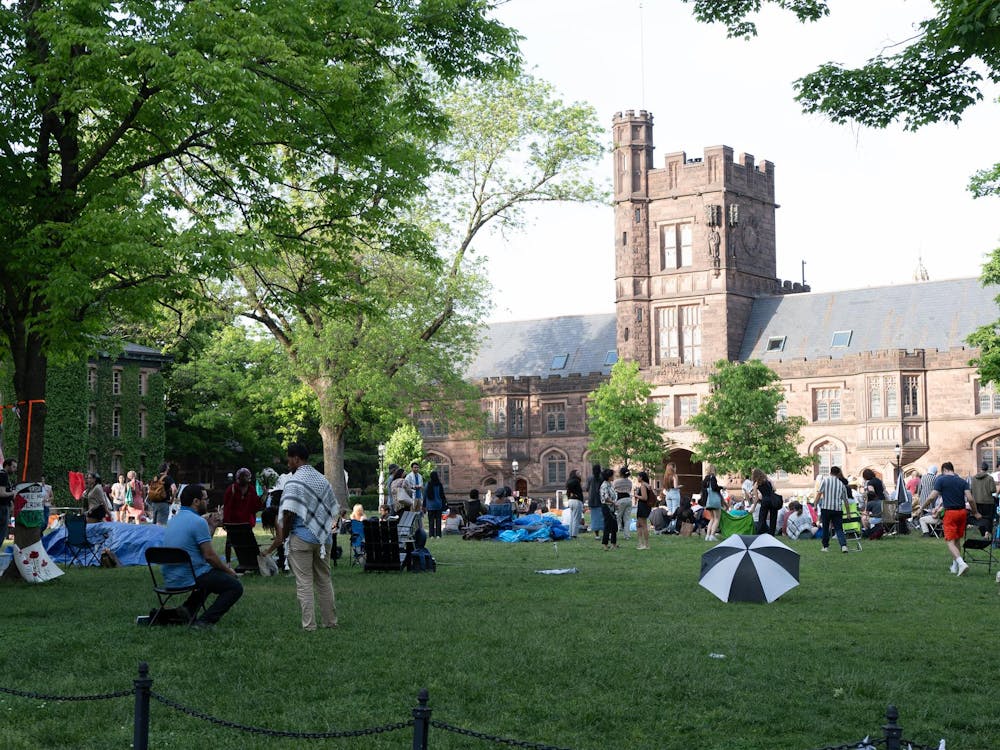Editor's Note: This letter from President Eisgruber was written in response to the Letter to the Editor entitled "Sign on to 'We Are Still In'" from Princeton Advocates for Justice and other groups published on June 9, 2017.
Thank you for your recent note and for transmitting your petition. I appreciate your concern for the environment and your commitment to sustainability. Indeed, as you may have seen from our website, Princeton University recently reaffirmed its commitment to research and teaching on environmental issues, and to developing and implementing high standards of sustainability in its campus operations. Last week’s statement not only reiterated a pledge that the University initially made in 2015, but also added that “Princeton welcomed and continues to support the action that was taken in Paris in December 2015 under the auspices of the United Nations Framework Convention on Climate Change.”
I do not believe, however, that it would be appropriate for the University to join the “We Are Still In” petition. I try to avoid signing petitions unless I can genuinely endorse every word of them, and the “We Are Still In” petition does not meet that standard. For example, the petition suggests both that the U.S. withdrawal from the Paris accord “undermines a key pillar in the fight against climate change” and also that the withdrawal will have little effect, because “no matter what policies Washington may adopt,” cities, states, corporations, and universities will work together “to ensure that the U.S. remains a global leader in reducing emissions.” These claims appear contradictory, and I suspect that the latter portion may be overly optimistic. As a personal matter, I consider the retreat from the Paris accord to be a serious mistake, partly because it portends changes in federal policy that will compromise America’s ability to be a global leader on climate change, and, indeed, on other issues as well.
Even if the petition were drafted differently, I would be concerned about putting the University in a position of endorsing propositions as specific as those it contains. This University’s ability to make a positive difference on climate change depends crucially on remaining an impartial forum for rigorous and scholarly debate about what policies will best address environmental challenges. We can, should, and will continue to invest in research and teaching on climate change and environmental studies; likewise, we can, should, and will commit to high standards of sustainability in our own operations. We can affirm our support for the Paris accords, which would have helped the University to achieve its own sustainability goals, and we have done so. We should, however, be very cautious about declaring one or another political view to be the official position of the University: our scholars, both on the faculty and in the student body, can and should speak for themselves.
The principle at stake here is an important one: the preferred way to pursue truth on a university campus is through vigorous debate and careful scholarship, not via a presidential declaration or the collection of names on a petition. That fundamental premise of our enterprise is put at risk if I endorse specific policies as the official view of the University. Doing so can create an orthodoxy that may chill discussion or dissent. Such orthodoxy is inconsistent with the ethos of an institution that is committed, as the faculty of this University rightly reaffirmed in 2015, to “free and open inquiry in all matters.”
For these reasons, I must be cautious about signing petitions and especially about announcing any view as the official position of the University. Caution need not entail silence: Princeton’s statement about climate change stated unambiguously that we welcomed and continue to support the Paris accord. There have been and will be other issues where I have more latitude to speak as president, either because the issues fall within my own area of scholarly expertise, or because they pertain directly to higher education or affect our community in specific and unusual ways. But while caution need not entail silence, it does require that I speak judiciously, and that is especially so when I make a commitment on the University’s behalf. As a result, I have a strong preference for speaking in my own words rather than through statements presented by or negotiated with others.
Thank you again for writing, for your commitment to service, and for your engagement with the University. I send my best wishes for a good summer, whether you are spending it here in Princeton or elsewhere.
With best wishes,
Christopher Eisgruber ’83
President, Princeton University









